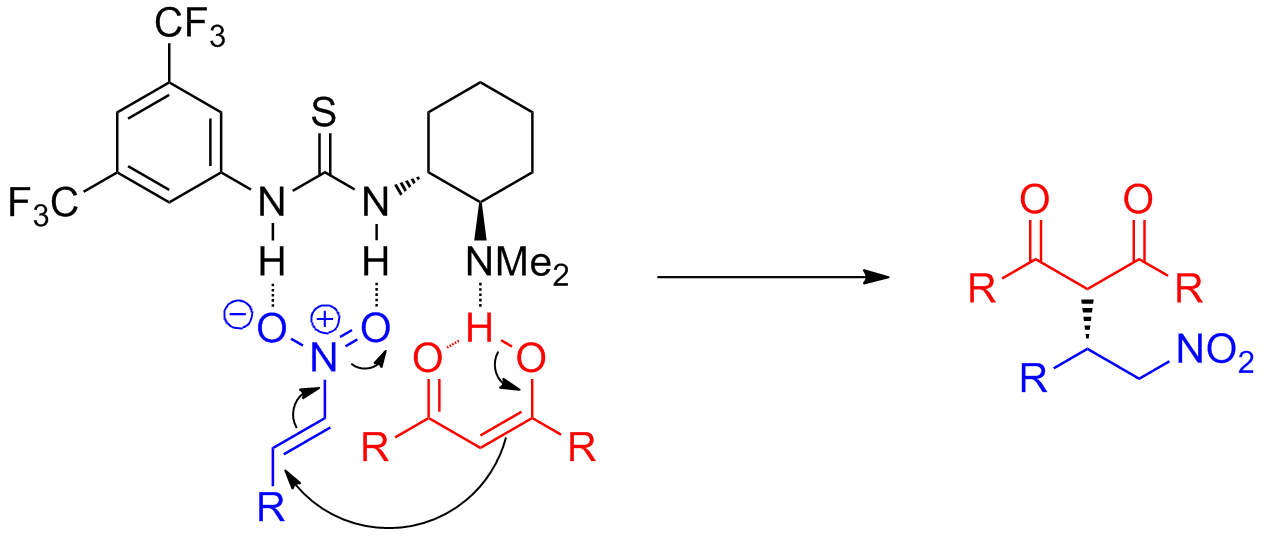|
Hydrogen Bond Catalysis
Hydrogen-bond catalysis is a type of organocatalysis that relies on use of hydrogen bonding interactions to accelerate and control organic reactions. In biological systems, hydrogen bonding plays a key role in many enzymatic reactions, both in orienting the substrate molecules and lowering barriers to reaction. However, chemists have only recently attempted to harness the power of using hydrogen bonds to perform catalysis, and the field is relatively undeveloped compared to research in Lewis acid catalysis. Catalytic amounts of hydrogen-bond donors can promote reactions through a variety of different mechanisms. During the course of a reaction, hydrogen bonding can be used to stabilize anionic intermediates and transition states. Alternatively, some catalysts can bind small anions, enabling the formation of reactive electrophilic cations. More acidic donors can act as general or specific acids, which activate electrophiles by protonation. A powerful approach is the simultaneous act ... [...More Info...] [...Related Items...] OR: [Wikipedia] [Google] [Baidu] |
